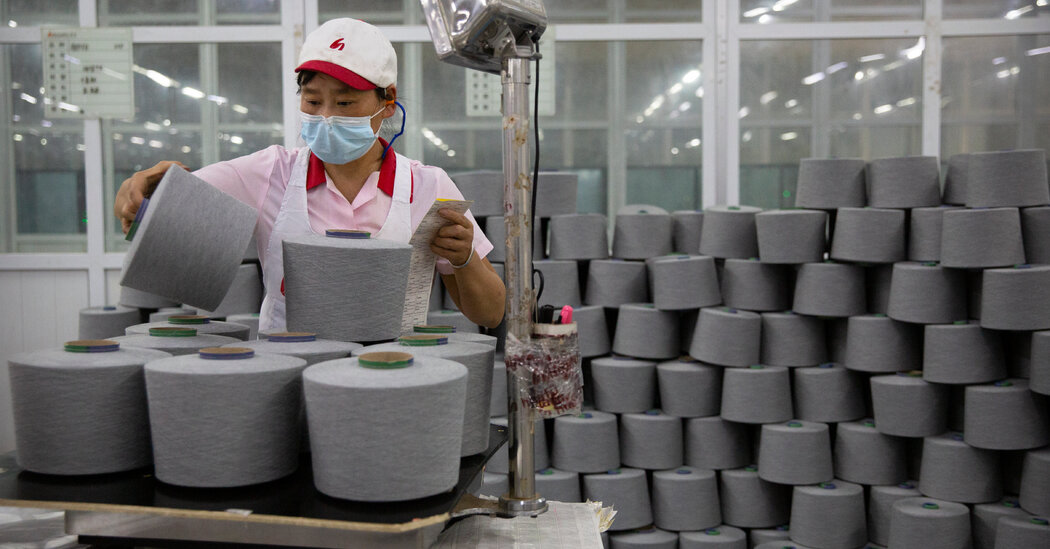Companies including Nike, Coca-Cola and Apple lobbied Congress in an attempt to weaken that provision, claiming that the passage of the bill could
Companies including Nike, Coca-Cola and Apple lobbied Congress in an attempt to weaken that provision, claiming that the passage of the bill could wreak havoc on already crippled supply chains. Roughly one in five cotton garments sold globally contains cotton or yarn from Xinjiang, and the region produces a significant portion of the world’s polysilicon, which is used to make solar panels and smartphones.
“It is a piece of legislation that will impose substantial constraints and costs on corporations that have been operating their supply chains in ways that ignore labor rights with impunity,” said Scott Nova, the executive director of the Worker Rights Consortium, an independent labor rights organization. “And it is vehemently opposed by powerful corporations across industrial sectors.”
Representative Thomas Suozzi, Democrat of New York and the chairman of the Uyghur Caucus, acknowledged in an interview that a number of counterarguments had quietly loomed over the bill, from corporate lobbyists nervous about profits and supply chains to climate hawks worried about endangering the nation’s access to solar panels.
“To all those things, I say, ‘That’s too damn bad,’” Mr. Suozzi said. “We have to do this. This is so egregious that we’ll have to just figure out another solution. We’re just going to have to innovate our way around it. We can’t allow this to continue.”
The legislation passed the House in September 2020 by a 406-to-3 vote. At that time, it faced headwinds in the Senate, especially on the Banking Committee, where some lawmakers were sensitive to corporate concerns about a stringent reporting requirement embedded in the text.
That provision, which would require companies to disclose the extent of a wide range of activities conducted in the Xinjiang region, was ultimately stripped out of the Senate bill, which passed unanimously in July.
Understand the Disappearance of Peng Shuai
Where is Peng Shuai? The Chinese tennis star disappeared from public view for weeks after she accused a top Chinese leader of sexual assault. Recent videos that appear to show Ms. Peng have done little to resolve concerns for her safety.
But the measure languished, with neither the House nor the Senate interested in taking up the other’s bill. The House advanced a larger China-focused measure that included a version of the Uyghur legislation with the reporting mandate intact, but the Senate declined to take it up.
www.nytimes.com
